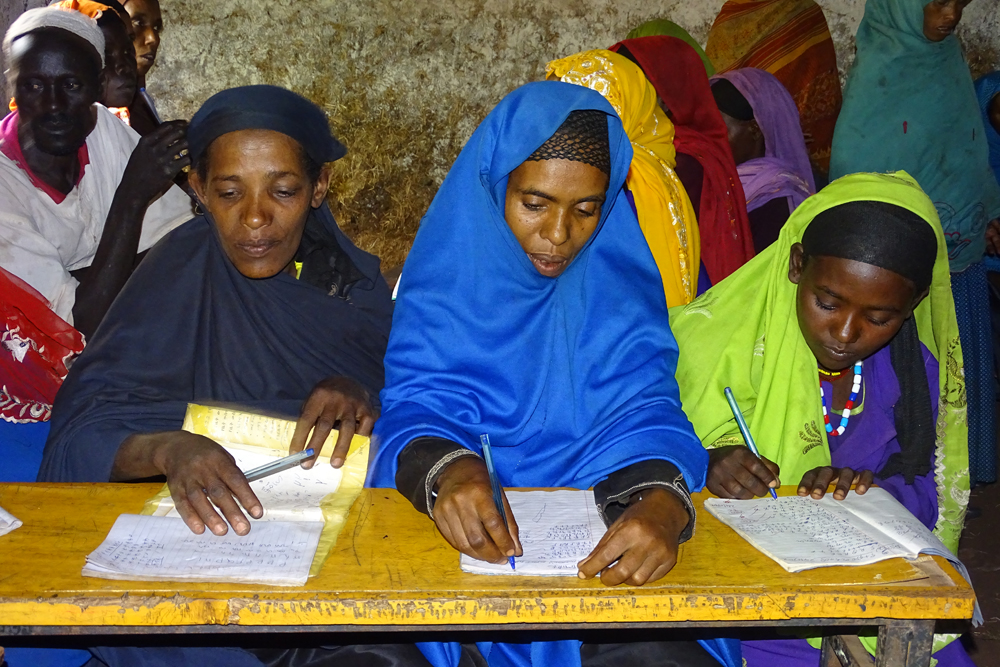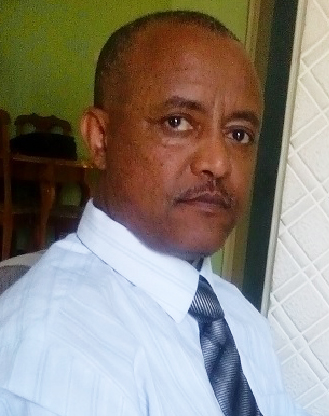As a rural development specialist, I have been working for various governmental organizations and NGOs in program management and coordination in Ethiopia. Since 2008, I have been working at DVV International East/Horn of Africa regional office – currently, as an adult education specialist, focusing on systems support. I have recognized that DVV has been the pioneer institute in Ethiopia, laying the foundations for an improved adult education system through its technical and financial support to the Ethiopian government and other partners. The continuous learning and dynamic working environment has provided me with a room for thinking outside the box and try various approaches seemingly working somewhere else and yet useful if adapted to local situations.
What Experiences from Morocco?
Prior to traveling to Morocco, it was a privileged in participating a regional workshop on Service Delivery Optimization that was held from 16-18 September 2014 in Jinja, Uganda that was organized and facilitated by the East/Horn of Africa regional office, which served as an eye-opener and a foundation for introducing the new approaches of adult education system building in Ethiopia.
When visiting Morocco, in May 2015, I had the exceptional opportunity to examine how effectively adult education systems and structures are favoring sustainable social and economic development in that country. It was exciting for me to see their well-established community learning centers (CLCs) that have been serving local communities as an important service provider with a huge course offer. CLCs cover fields as diverse as health, agriculture, literacy and numeracy, kindergarten, language, saving and credit, vocational skill training, kindergarten in a ‘one stop-shopping’ manner. Furthermore, I observed how adult education systems can favor the establishment of community-owned sustainable CLCs in Morocco, which has not yet been neither tried nor known in my country, Ethiopia.
Opened doors for adapting the best practices
Supported by the Federal Ministry of Education’s Adult and Non-Formal Education Coordination Unit, DVV International’s East Africa/Horn of Africa Regional Office has been promoting Integrated Functional Adult Education (IFAE) for the past couple of years, providing technical and financial support for the program’s implementation at national, regional, and district levels. IFAE is a functional literacy programme for teenagers and adults, which is available to women, the disabled, and minorities. Among other goals, IFAE seeks to increase literacy rates to empower women and to raise the locals’ standards of living.
As major achievements, I have witnessed the hard work towards introducing initiatives and adult education approaches that would add value to the existing efforts of the local government. I believe that some key challenges have contributed to the meagre performances – as, for instance, the limited attention given to adult education, poor integration of the regional partners in implementing the program, and poor functionality of the adult education system across the country. Despite these difficulties, the recently launched second five year Growth and Transformation Plan (GTP2) has stipulated to further institutionalize adult education in the country by erecting an independent agency, which I still believe that its realization needs firm commitment for attitudinal change, improved technical capacity, and resources allocation unlike the former plan (GTP1) as indicated in the report on performances and achievements of GTP1 (MoE, 2015).
What are the new approaches?
Recently, the DVV team has initiated two new programs named ‘Community Learning Centers (CLC)’ and 'System Building’ that are planned to be piloted and implemented in selected regional states (Amhara, Oromia and Southern Nations and Nationalities States for CLC; Tigray and Afar states for System Building). The system building approach is aimed at improving the adult education service delivery mechanisms by closely reviewing the existing system and identifying the key blockages that hinder the effective and efficient implementation. By doing so, the regional partners would be able to build a better and workable system. To this end, the team has provided an introduction and familiarization workshop on these approaches to the senior managers in the respective regions.
Bringing the new approaches on board
Together with my team, I travelled to Tigray region, located in Northern Ethiopia, some 800 km from our Addis Ababa office. I enjoyed the visit to this region known for its history of civilization, with UNESCO World Heritage Sites such as Axum and its many rock hewn Churches. Nevertheless, Tigray still is the home of a people living in poverty – and that’s why we were actually there. We were to support the local government partners in their struggle towards ending poverty and under-development through strengthening and promoting effective adult education systems.
I conduct an orientation workshop aimed at familiarizing the overall concepts and implementation modalities of the System Building approach. I was quite inspired by the commitment of the participants, who grasped the exceptional opportunity to talk to senior managers and experts delegated from various regional bureaus and the districts selected for pilot testing, in the small-town of Wukro, some 40 km east of the regional capital, Mekelle.
What were the outcomes of the workshop?
During our working sessions, I was overwhelmed by the fact that the participants recognized that they are actually able to tackle most of the challenges and that the key blockages identified in the process of adult education provision could be corrected immediately, recognizing and implementing the mechanisms for ensuring a workable adult education service delivery in the region. Hence, at the end of the workshop, all participants delegated from the partner organizations vowed to contribute their share by working together more closely.
So what will happen next months and years?
Beyond familiarizing the concepts of adult education and the new innovative approaches, the event has visibly created enthusiasm among the participants, who are now eager to take immediate action. Thus, they have vowed for more commitment for a stronger adult education system in the region. The summary of their joint action points were:
• The regional technical team will review progress on a monthly basis and provide technical support at any time.
• Tackle the existing challenges of the IFAE program in the region by acting not merely as contributors but rather as full owners of the program
• Recognizing that there has not been a structure for coordinating the IFAE program in the region, it was agreed to work hard to establish a Core Process (a structure that is accountable to the higher management of the bureau i.e. head of the bureau, with more power for decision) with in the regional education bureau for better coordinated efforts towards solving the identified challenges.
• Work towards meeting the desired goal and objectives of the program through preparing an integrated implementation plan with a commitment for close follow-up throughout its implementation.
• Establish a permanent venue and platform by including other stakeholders such as DVV international
• Provide necessary technical and financial support for achieving the IFAE program objectives.
• Identify and disseminate best practices and experiences in the IFAE implementation using all regional public media
Final Remarks
The new system building approach has sparked enthusiasm and commitment for tackling the challenges observed in the regional IFAE implementation process. I was not tired after a whole week spent in Tigray as workshop facilitator. Rather, this experience gave me a brainwave to see this approach bring a bright hope for transforming regional adult education service delivery.




